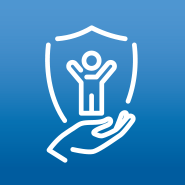Introduction
“Babies admitted to neonatal units are at risk of feeding and early communication difficulties. This is due to being born early or having complex medical conditions that affect their neurology and development, and/or functioning of the structures required for sucking and swallowing.
The speech and language therapist (SLT) has a role in identifying babies at risk of feeding or communication difficulties and in helping babies and their families to establish safe and positive oral feeding, and support their language development.
The SLT also has a role in education and implementation of developmental care on the neonatal unit as part of the wider team to support babies’ optimal neurodevelopment.”
RCSLT website www.rcslt.org
How to become a neonatal SLT
- Are you a considerate SLT keen to promote evidence based, ultra-early intervention feeding and communication support for the most fragile population in our society?
- Are you a good listener and value collaborative team working to deliver family focussed, compassionate care?
- Maybe you have some experience in paediatric feeding and/or early development? Or valuable experience working in acute adult settings.
Then a career as a neonatal SLT may be what you are looking for…
SLTs working in neonatal units within our region have come from wide ranging backgrounds. View the video below to find out more:
Neonatal SLT is a specialist field, which is considered to have elements that are unique to its client group. As such, SLTs working within neonatal care need to develop competencies that meet the specific needs of this population.
Neonatal SLTs will have:
- Diploma/degree in Speech and Language Therapy
- HCPC registration
- Post graduate RCSLT Dysphagia Competencies or equivalent
- Ideally some post graduate experience in acute hospital setting or community dysphagia
- Completion of or working towards advanced clinical competencies using the RCSLT Neonatal Competency document
In addition to this, CPD/courses will support therapists in gaining their neonatal competencies. The HEE Foundation e-learning module and workbook has been developed as an entry level training course for neonatal AHPs with profession specific learning for SLTs. HEE elfh Hub (e-lfh.org.uk) Neonatal SLTs will develop further skills or advanced clinical practice through ongoing CPD.
Are you interested in pursuing a career in neonatal SLT? We’re keen to support you in taking your next steps.
Links
The following links include core documents and websites that are helpful in understanding the basics of neonatal care and developing your knowledge and skills:
- Royal college of speech and language therapists website: contains information about neonatal SLT role and competency documents and staffing recommendations: rcslt.org
- Speech and language therapy staffing recommendations for neonatal units (PDF)
- RCSLT neonatal competency framework (Word)
- Health Education England elearning website: contains introduction modules for AHPS working in neonatal care. HEE elfh Hub (e-lfh.org.uk)
- Unicef Baby Friendly Initiative (BFI) website – all units within our neonatal networks are working towards BFI accreditation. This website provides all the information around the initiative and also has training/education resources. unicef.org.uk/babyfriendly/
- British Association of Perinatal Medicine (BAPM) – this website contains up to date service provision documents, Infant feeding frameworks, FiCare frameworks and also webinars/conferences. British Association of Perinatal Medicine | Home (bapm.org)
- BLISS – BLISS is a charity for babies born premature or sick. This website contains information for both parents and professionals, leaflets, research and audits, project updates, education/webinars. https://www.bliss.org.uk/
- SLTs working within neonatal care can also join the RCSLT CEN which meets regularly to update on working parties and position papers. The CEN also hosts an annual event ‘hot topics’ to support further CPD, research updates and training. More information about the CEN is on the RCSLT website or you can follow on twitter @NeoSLTCEN
Other useful websites around specific neonatal conditions include:
Tommys: Charity website for all families during pregnancy, birth and also around baby loss. https://www.tommys.org/pregnancy-information/premature-birth/your-premature-baby-hospital
Cleft lip and palate association (CLAPA) https://www.clapa.com/
NEC UK – To preserve and protect the physical and mental health of families affected by Necrotising Enterocolitis https://www.necuk.org.uk/
TOFS – Oesophageal atresia (OA) and tracheo-oesophageal fistula (TOF) – website for families and professionals https://tofs.org.uk/
HIE Peeps – Peeps HIE Charity | HIE Awareness & Support https://www.peeps-hie.org/
Contact:
For further information or support you can also contact your Speech and Language Therapy Neonatal ODN leads:
Thames Valley and Wessex: Zoe Gordon england.tv-w-neonatalnetwork@nhs.net
Kent, Surrey and Sussex: Kate Jones medwayft.kssneonatalodn@nhs.net

